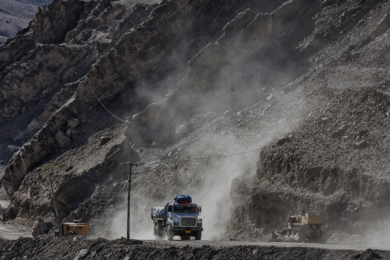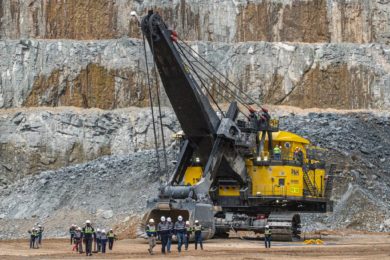Vale says its joint venture Samarco Mineração SA division has been given clearance to restart operating activities at its Germano Complex, in Minas Gerais, Brazil, some four years after a dam collapse shuttered the operation.
Vale said the division, owned 50:50 by it and BHP, had received the Corrective Operation License (LOC) for its operating activities in the complex, adding that the licence was approved by the Mining Activities Chamber (CMI) of the State Council for Environmental Policy (COPAM).
Following this authorisation, Samarco has now obtained all environmental licences required to restart its operations.
Samarco is due to restart its operations using dry stacking technologies that, Vale says, will reduce the risk of such an accident happening again.
“For this reason, the operational restart of iron ore extraction and beneficiation plants in Germano and the pelletisation plant in the Ubu Complex, located in Anchieta, state of Espírito Santo, will only occur after the implementation of a filtration system, which construction is expected to take around 12 months,” Vale said. During this period, Samarco will continue operational readiness activities including equipment maintenance.
Following the implementation of the filtration process, and subject to shareholder approval, Samarco currently expects to restart its operations around the end of 2020, Vale says.
With the filtration process, Samarco expects to be able to substantially dewater sand tailings, which represents 80% of total tailings by volume, and stack these filtered tailings safely. The remaining 20% of tailings will be deposited in Alegria Sul pit, a bedrock self-contained structure, to increase safety. Alegria Sul pit preparation works began in October 2018 and were concluded this month.
Following changes to the environmental and regulatory frameworks for mining in Brazil in 2019, Samarco adjusted its mining and tailings disposal assumptions, including a reduction in the capacity of the Alegria Sul pit, so tailings would be confined to the self-contained area. This also led to a reduction in the capacity to store filtered tailings due to the classification of the Germano pit as a dam, which will now be decommissioned in accordance with the regulation.
The above-mentioned changes to regulatory and tailings disposal assumptions materially impact the expected ramp up of Samarco operations given a range of factors, including but not limited to the completion of additional licensing processes and the development of additional tailings disposal sites, the company said.
Samarco expects to be able to restart operations through one concentrator and produce some 7-8 Mt/y following the installation of the filtration technology.
A second concentrator could be restarted in around six years to reach a range production of 14-16 Mt/y, while the restart of the third concentrator could happen in around 10 years after the issuance of the LOC, when Samarco expects to reach annual production volume in a range of approximately 22-24 Mt/y, it said.










